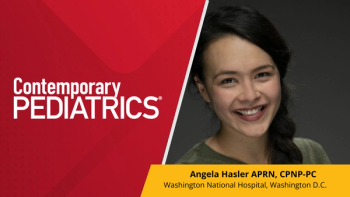
- August 2024
- Volume 40
- Issue 7
Communication, planning, and vaccines prevent infections in the school setting
Donna Hallas. PhD, PPCNP-BC, CPNP, PMHS, FAANP, FAAN, underscores the critical need for proper vaccination and effective communication between parents and schools to ensure sick children stay home, while addressing logistical challenges faced by parents.
In this interview with Contemporary Pediatrics, Donna Hallas. PhD, PPCNP-BC, CPNP, PMHS, FAANP, FAAN discusses the importance of keeping children home when they are sick, emphasizes the need for proper vaccinations, and offers advice to parents who struggle with logistics or workplace pressures that make it difficult to keep their sick children at home.
Hallas is an editorial advisory board member of Contemporary Pediatrics, as well as a clinical professor, program director of Pediatrics NP at New York University Rory Meyers College of Nursing in New York, New York.
Contemporary Pediatrics:
What can providers point out to families that really help drive home the fact that children should stay home when they’re sick?
Donna Hallas, PhD, PPCNP-BC, CPNP, PMHS, FAANP, FAAN:
We have moved away from pandemic. There's still COVID-19, so kids still need the covid vaccines, per the CDC recommendations. They need the regular vaccines based on their age and years that they're going to school, there's certain vaccines that they definitely have, [along with needing] boosters. If we think, "what worked well during COVID?" We put in routine health measures. Hand washing turned into "let's teach everybody how to wash your hands." As nurses, that's the very first day in school. You learn hand washing, you learn all the particulars about where the germs are in a sink and everything. This was a teachable moment, and don't forget it, hand washing is really important. If kids have a cough, and some kids, have a cough and they're not sick at all, it might be they have a diagnosis of asthma, or they have allergies, especially in September, October. The kids will have coughs, but we recognize when they're sick, and so do parents. They need to stay home if they're sick and need to be seen. There's telehealth visits now, there's opportunities to prevent, especially respiratory infections. That's one of the biggest things we always focus on in September, October. If they weren't coughing, or they cover their mouth when they're coughing, and we teach them how to cough in their arm, and if we teach the basics, they should be fine. That's what the CDC is recommending, and they're also recommending [improved] ventilation, which a lot of schools put in during COVID and a lot of stores did as well. That ventilation is really important. If a child's sick, if they have fever, they should stay home. They shouldn't arrive at school with a fever. If they have a rash, take a picture, send it to their provider. I think those things are important for parents to know and for the school systems to know. The nurses and the nurse practitioners in the school-based health center, do lead a lot of initiatives in the school to keep everybody healthy. Overall, it's asking "how are we creating a healthy environment in school?" Being able to play outside and participate outside, because you get fresh air, that's all really important as well.
Contemporary Pediatrics:
What advice do you have when it is difficult for parents to keep children home logistically, or if the parents feel the child is well enough to go to school, even if they really shouldn’t?
Hallas:
We get a lot of that, where parents have to go to work. Some parents will say, "I'm going to lose my job if I don't show up at work." So they're fearful of that, and they do send their children to school sick. Then within an hour, they might be at work, but they're getting a call from the school because the child's sick. So one of the things I asked them, "do you have anyone that can provide care for the child when they're sick enough to stay home from school?" Is there a friend where you can reciprocate watching their child if they are sick? So making plans in advance is really important. Sometimes I advise the parents talk to your employer, especially if the child has a chronic illness. That child is going to get sick more frequently than other children because they're more susceptible, usually to just routine viruses and germs that we see in school systems. But when children are going to school with a fever, they're going to be sent home, because the school can't expose everybody. A lot of times, if they have strep throat for example, and you start them on the penicillin, then within 24 hours, they're feeling better and they're no longer contagious, but they have to be fever free for 24 hours. So there's little things like that that are helpful. And sometimes parents will say, "Yeah, I do have a relative I could ask that's not working that could stay with the child."
I hope all of the providers will really reinforce the importance of getting vaccines ahead of school. The flu, usually the flu season depends on what part of the country you live in, but we all know when it is, so the vaccine should be administered the month before or 6 weeks before flu season is going to start. That's really critical. All the other vaccines, too. If some kids haven't gotten all of them, really advocate to catch them up. In the school based health centers, they can receive the vaccines at school. If they just have a school nurse, they usually do not give the vaccines, but they're very responsible for looking at and letting parents know a vaccine is missing and to encourage talking with the provider to get it. We have children dying from the flu, and you don't know which healthy person is going to have a bad reaction to the flu, that particular virus, for that year. So it's important to get the vaccine and it's readily available now to parents. It's very hard to see a child get critically ill from flu, while we have a protection for them. It's very hard. We talk a lot, and even as a pediatric person, when someone's in our office and they're having another baby, it's important to say, "hey, protect this baby, take the vaccines," because those first few months of life, the baby gets protection from the parent.
Reference:
CDC Releases Guidance for Preventing Spread of Infections in Schools to Keep Children Healthy and Learning. CDC. Press release. May 17, 2024. Accessed July 12, 2024. https://www.cdc.gov/media/releases/p-0517-guidance-k-12.html
Articles in this issue
over 1 year ago
Exploring the treatment landscape for pediatric vitiligoover 1 year ago
Exploring kindergarten readiness in children born pretermover 1 year ago
Navigating school-based mental health servicesover 1 year ago
A preview of the August issue of Contemporary Pediatricsover 1 year ago
Navigating medicine in the school settingNewsletter
Access practical, evidence-based guidance to support better care for our youngest patients. Join our email list for the latest clinical updates.








